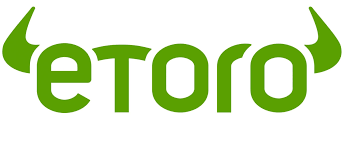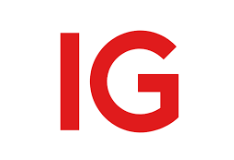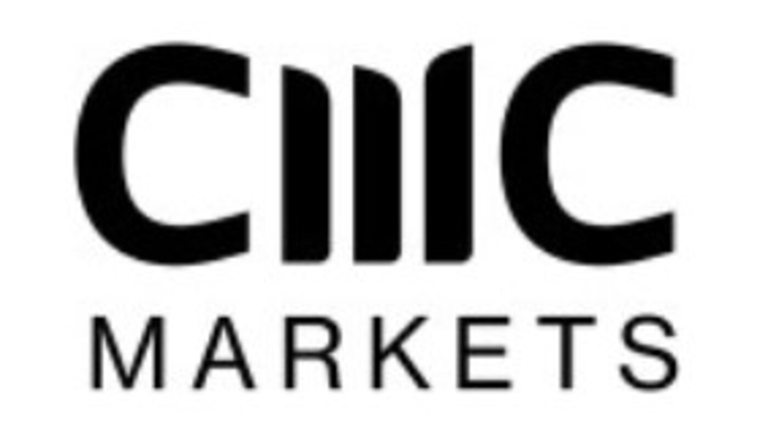Best brokers
Best Forex Broker for Beginners UK

Forex has moved well beyond trading floors and investment banks. In the UK, thousands of newcomers are opening accounts every month with the best forex brokers, but the hardest step is deciding which broker deserves your trust.

The right choice changes everything. A platform that’s FCA-regulated, easy to navigate, and transparent with costs lets you focus on learning how the market works instead of worrying about where your money went. The wrong one does the opposite.
This guide unpacks why broker choice matters, what features to prioritise, and which options stand out for new traders today.
Key factors to consider before choosing
Five things define a beginner-friendly broker:
- First, proper regulation under the FCA, which safeguards your funds.
- Second is a usability, as the platform should feel intuitive from the start, whether you’re trading on desktop or mobile.
- Third, education: quality tutorials and webinars help you move beyond guesswork.
- Fourth, transparent costs, because tight spreads and clear fees preserve your capital.
- Finally, reliable customer service, so questions don’t turn into obstacles.
When these elements align, a platform becomes more than just functional; it becomes a place to build confidence. It delivers exactly that foundation, giving you room to practise, learn, and trade without second-guessing the tools in front of you.
Best forex trading platforms for beginners in the UK
eToro
eToro works if you want a low-stress way to step into forex without staring at a blank chart. Its CopyTrader system lets beginners follow seasoned traders automatically, and the demo account gives you unlimited practice with virtual funds.

It’s FCA-regulated, which covers client money protections, but fees deserve attention: withdrawals carry charges, and inactivity penalties kick in after a year of silence. If your plan is to learn by observing, place small trades, and gradually build confidence, eToro is arguably the best forex broker in the UK for beginners, provided you stay mindful of its fee quirks.
👉 Find out more with our eToro review
| Pros of eToro | Cons of eToro | ||
| ✅ Copy trading lets you follow real traders | ❌ $5 (≈ £3.90) withdrawal fee on USD accounts; | ||
| ✅ Unlimited demo account | ❌ $10 inactivity fee after 12 months of no login | ||
| ✅ FCA-regulated, ensuring fund protection | ❌ Currency conversion adds ~1.5–3% cost |
| Pros of eToro | Cons of eToro |
| ✅ Copy trading lets you follow real traders | ❌ $5 (≈ £3.90) withdrawal fee on USD accounts; |
| ✅ Unlimited demo account | ❌ $10 inactivity fee after 12 months of no login |
| ✅ FCA-regulated, ensuring fund protection | ❌ Currency conversion adds ~1.5–3% cost |
- Equities, ETFs, crypto both real and derivatives
- Social trading e copy trading
- User-friendly platform and demo account
61% of investor accounts lose money by trading CFDs with this provider.
IG
IG feels built for learners. The IG Academy offers structured courses, daily webinars, and quizzes that walk you through forex basics before you risk a penny. Its £10k demo account mirrors the live platform closely, so practice is realistic.

IG is FCA-authorised, and its pricing is clearly published, with spreads that remain competitive even for micro-traders. Beginners who like to know the “why” behind every move tend to stick with IG. If education and a professional-grade platform are your priorities, IG delivers one of the best forex trading platforms for beginners.
👉 Learn more about this broker with our IG review
| Pros of IG | Cons of IG | ||
| ✅ Deep educational resources and an intuitive demo setup | ❌ Spreads can start from around 0.85 pips (EUR/USD) | ||
| ✅ FCA-regulated with transparent pricing | ❌ Charting tools may be more than beginners need | ||
| ✅ Demo closely mirrors the live experience |
| Pros of IG | Cons of IG |
| ✅ Deep educational resources and an intuitive demo setup | ❌ Spreads can start from around 0.85 pips (EUR/USD) |
| ✅ FCA-regulated with transparent pricing | ❌ Charting tools may be more than beginners need |
| ✅ Demo closely mirrors the live experience |
Plus500
Plus500 strips away the noise. The layout is clean, order tickets are simple, and setting up a demo is instant, with no fuss and no forms. This is why many newcomers pick it as their first broker. It’s FCA-regulated, so client protection boxes are ticked.

But there are trade-offs: inactivity fees land after three months without login, and spreads can be wider than some rivals. For absolute beginners who value clarity and fast setup over fancy features, Plus500 is an accessible path into forex. It often earns the nod as the best forex trading platform UK for beginners who want simplicity first.
👉 Read our Plus500 review to learn more
| Pros of Plus500 | Cons of Plus500 | ||
| ✅ Effortless demo setup | ❌ $10/month inactivity fee after just three months of no login | ||
| ✅ FCA-regulated and transparent in fees | ❌ Spreads may be wider than some competitors | ||
| ✅ Simple, uncluttered interface |
| Pros of Plus500 | Cons of Plus500 |
| ✅ Effortless demo setup | ❌ $10/month inactivity fee after just three months of no login |
| ✅ FCA-regulated and transparent in fees | ❌ Spreads may be wider than some competitors |
| ✅ Simple, uncluttered interface |
CMC Markets
CMC’s strength lies in balance. Its platform is packed with tools, yet the interface feels approachable even if it’s your first time. For pricing, beginners can start with standard spreads around 0.7 pips, or opt into FX Active for near-zero spreads plus a small commission, useful once you’re trading more regularly.

FCA regulation and transparent fee policies give peace of mind. The catch is a modest inactivity fee if you go silent for a year. For beginners who want a platform that grows with them, not one they’ll outgrow in six months, CMC Markets stands out.
👉 Interested in this broker? Read our CMC Markets review to learn more
| Pros of CMC Markets | Cons of CMC Markets | ||
| ✅ Tight spreads (EUR/USD from ~0.7 pips), zero commission, vast instrument variety (330+ pairs) | ❌ £10 inactivity fee after 12 months of no trading, unless you have zero funds | ||
| ✅ No deposit or withdrawal fees, clear fee policies | ❌ The platform’s richness can feel overwhelming at first | ||
| ✅ Advanced charting tools, realistic demo, and beginner guides |
| Pros of CMC Markets | Cons of CMC Markets |
| ✅ Tight spreads (EUR/USD from ~0.7 pips), zero commission, vast instrument variety (330+ pairs) | ❌ £10 inactivity fee after 12 months of no trading, unless you have zero funds |
| ✅ No deposit or withdrawal fees, clear fee policies | ❌ The platform’s richness can feel overwhelming at first |
| ✅ Advanced charting tools, realistic demo, and beginner guides |
How to get started with your first trade
Once you’ve chosen the right broker, the next step is actually placing your first trade. Start by opening a demo account; every platform above offers one, so you can practise without risk. This is where you’ll learn the basics: how to find currency pairs, how spreads work, and what leverage actually does to your balance.
When you’re ready to move to live trading, begin small. Fund your account with money you can afford to lose and stick to major pairs like GBP/USD or EUR/USD, where spreads are tightest and volatility is more predictable.
One of the best forex trading platforms for beginners will make this transition seamless, with clear order tickets and built-in risk tools like stop-loss orders. The aim of your first trade is learning how the mechanics work in a live setting.
Common mistakes beginners should avoid
Most new traders don’t fail because they can’t read charts, they fail because they skip the basics. Overusing leverage is the classic pitfall; doubling down on a losing trade can wipe out an account in hours. Another mistake is treating demo accounts as optional. Practising first builds muscle memory, so your first live trades don’t feel overwhelming.
Some beginners also jump in with a single broker or one “hot” currency pair, leaving themselves exposed. Spreading trades across pairs and learning gradually is safer. And never ignore regulation: trading with an unlicensed broker is gambling with your deposits.
Choosing the best forex trading platform UK for beginners helps reduce these risks, but discipline has to come from you.
Conclusion
The platform you start with matters just as much as the trades you place. A beginner-friendly broker should be FCA-regulated, transparent in its pricing, and simple enough that you can focus on learning instead of fighting the software. Whether you prefer eToro’s social trading, IG’s education-first approach, Plus500’s clean interface, or CMC’s scalable depth, each of these brokers offers a solid foundation for beginners in the UK.
With the right choice, you’ll not only find the best forex broker UK for beginners but also a trading environment where you can build skills steadily and safely. Start small, use demo accounts, keep risk in check, and the rest comes with time and practice.
FAQs
What’s the minimum deposit to start forex trading in the UK?
It varies by broker. Some allow you to start from as little as £1, while others often set minimums around £250. Always check deposit terms before signing up.
Can beginners trade forex without paying commission?
Yes. Many UK brokers, including eToro and Plus500, operate on spread-only pricing. While they advertise “zero commission,” remember that costs are built into spreads, so comparing spread sizes is essential.
Which forex account type suits beginners best?
A standard retail account with fixed or tight spreads is ideal. Beginners should avoid complex professional accounts, which demand higher capital and waive FCA safeguards. Starting small with a demo, then moving to a standard account, offers the best learning curve.
Disclaimer:
